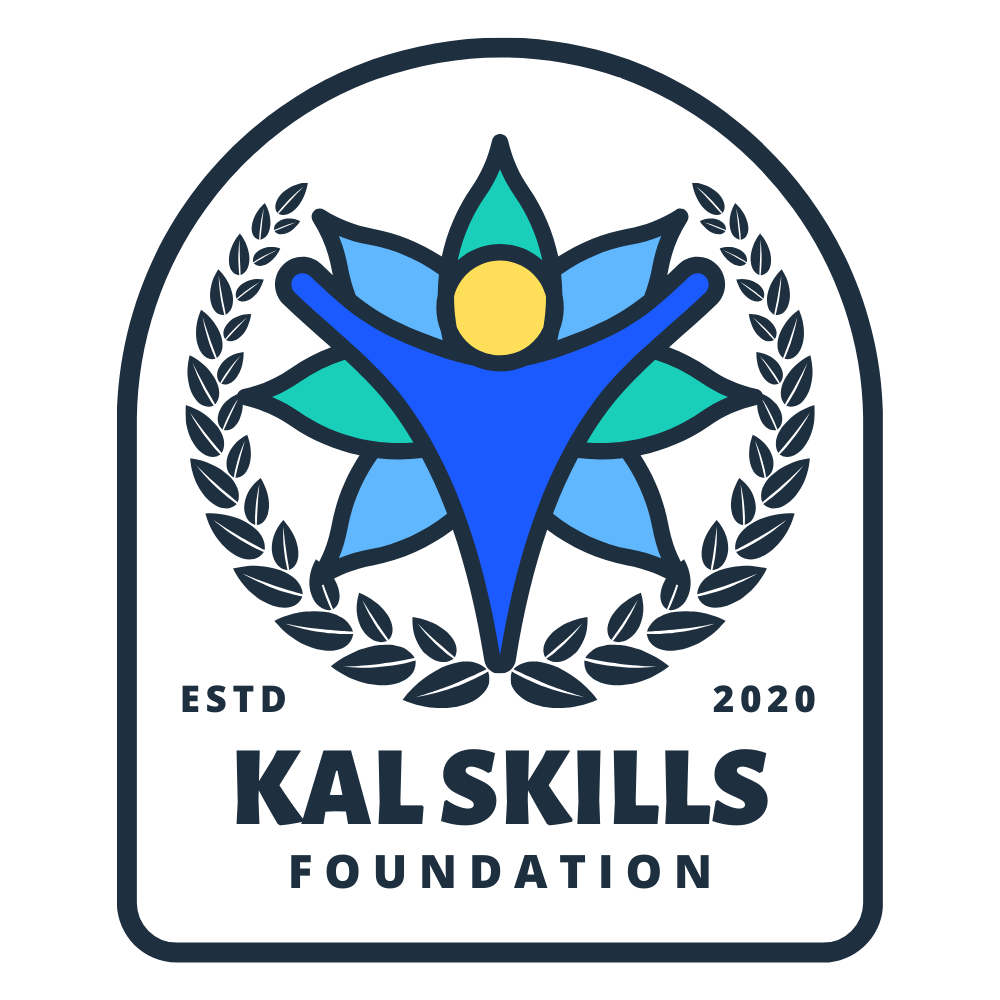Up to 80% of our workday is spent on tasks that don’t help us get things done1. But, only 17% of Americans actually keep track of their time1. This shows how vital it is to get good at organizing ourselves in today’s fast world.
Organizational skills help us work better, faster, and with more focus. They cover time management, planning, leadership, and team work. These skills are key to doing well at work and growing your career.
In this guide, we’ll look at the main parts of getting better at organizing. We’ll share practical tips and methods to change your work life for the better. This article is for anyone looking to improve their skills and achieve great things.
Key Takeaways
- Organizational skills are key for being productive, managing time, and growing professionally.
- Getting good at organizing can make you up to 40% more productive each day2.
- Good time management and planning are vital for reaching your goals.
- Strong leadership and team skills are needed for success.
- Improving your organizational skills can help you meet your goals 30% more often2.
Defining Organizational Skills
What are Organizational Skills?
Organizational skills help people and teams manage tasks, resources, and time well. They include planning, prioritizing, and coordinating activities. This ensures work is done efficiently and effectively3.
People with strong organizational skills are good at creating systems. They manage many tasks at once and keep their work area organized.
Types of Organizational Skills
There are several key organizational skills. These include time management, project management, and task prioritization. Other important skills are communication, problem-solving, and attention to detail3.
These skills help individuals stay focused and deliver results consistently3.
Employers value certain organizational skills. For example, time management, decision-making, and relationship building are important3.
Keeping a tidy workspace and multitasking are also valued3.
Organizational skills make work more productive and efficient4. Employers seek out professionals with these skills because they help the team succeed5.
| Organizational Skill | Description |
|---|---|
| Time Management | Effectively prioritizing tasks, setting deadlines, and utilizing tools to maximize productivity3. |
| Project Management | Coordinating project activities, delegating responsibilities, and tracking progress to ensure timely completion4. |
| Communication | Exchanging information clearly and concisely, both verbally and in writing, to facilitate team collaboration4. |
| Problem-Solving | Identifying and addressing issues efficiently, often through critical thinking and strategic planning4. |
| Attention to Detail | Ensuring accuracy and thoroughness in task completion to minimize errors and oversights4. |
“Organizational skills are the foundation for success in any professional endeavor. They enable individuals to streamline their work, enhance productivity, and achieve their goals more effectively.”
The Importance of Organizational Skills
Organizational skills are key for professionals in all fields. They help teams work better, meet deadlines, and reach their goals6. By practicing these skills, people can handle their workloads well and finish tasks on time6. Knowing how to manage time is also crucial. It helps people understand their schedules and how long tasks take6.
Benefits of Strong Organizational Skills
Strong organizational skills bring many benefits6. Working in groups can save a lot of time and share different ideas and knowledge6. Delegating tasks builds trust and strengthens relationships with coworkers, especially when the workload is heavy6. Good communication makes the workplace better by ensuring everyone knows their roles and duties6.
- Increased productivity7
- Better time management67
- Reduced stress67
- Improved decision-making
- Enhanced collaboration67
- Professional growth opportunities6
People with strong organizational skills are more valuable to their employers. They have better chances for career growth6. Showing these skills on job applications and reviews can help get hired and promoted6. Mentioning them on resumes and cover letters can also get you more job interviews6.
“Organizational skills create structure, saving time and energy for individuals, companies, and teams.”6
Job-ready skills training programs, like Coursera Plus, start at $59/month with a 7-day free trial6.
Time Management Strategies
Effective time management is key to staying organized. It helps reduce stress and boosts productivity. By focusing on what’s important, you can meet your goals better8.
Staying organized lowers stress and makes you feel in control9. It also increases focus and productivity. Plus, you get more free time to enjoy9.
Students should keep their teacher’s contact handy in their planner or phone8. Also, write down important dates and activities from class syllabi. Set reminders to stay on track8.
Knowing the final exam schedule is crucial for planning8. It helps you manage your time well during exams. Effective multitasking and adjusting workloads also help achieve goals8.
Time management can be tough due to poor planning and procrastination9. But, using the Pomodoro method and productivity apps can help10. Regularly check and improve your time management techniques10.
Effective time management boosts personal productivity and helps organizations succeed910.
Leadership Development for Organizational Success
Effective leadership is key for a company’s success. Investing in leadership development helps build the skills needed to tackle tough challenges. It also guides teams towards growth. Skills like strategic thinking and emotional intelligence are crucial and can be improved through training and mentorship.
Effective Leadership Skills
Good leaders have many skills, like strategic thinking and communication. They also know how to adapt and have emotional intelligence. This lets them understand their team, solve problems, and encourage new ideas.
By improving these skills, leaders can make better decisions. They can also create a positive work culture. This leads to lasting success for the company.
Building a Leadership Pipeline
Creating a strong leadership pipeline is vital. It means finding and training future leaders. This ensures a smooth handover of leadership roles11.
By focusing on developing leaders, companies can fill leadership gaps. They can also attract and keep the best talent. This leads to a culture of innovation and flexibility.
Studies show that companies with good leadership development programs do better than others12. These companies value learning, celebrate achievements, and use certified experts. This approach boosts performance and meets business goals11.

“Organizations that prioritize continuous learning can realize extraordinary potential.”11
Effective leadership development must be tailored. It should meet the unique needs of each leader level11. Customized learning experiences ensure relevance and engagement. This drives real impact on performance1112.
Team Coordination: A Crucial Element
Effective team coordination is key to success. It makes sure everyone works together smoothly to reach goals13. Skills in coordination help manage projects, improve supply chains, and use resources well. This way, teams can assign tasks, meet deadlines, and talk clearly, reducing waste and boosting productivity13.
Coordinating Skills in Action
Good team coordination leads to amazing results13. It combines skills and resources well, making sure tasks are done right without repeating work13. Projects are finished on time, and work flows smoothly, making the company look good and build trust with clients13.
Also, a well-coordinated team can solve problems better14. When team members feel valued, they’re happier at work, which keeps them from leaving and makes the workplace better14.
Coordinating skills are the base for a team that works well together14. Companies that focus on coordination get more done, innovate more, and make better choices. This sets them up for success in the long run14.
| Benefits of Effective Team Coordination | Impact |
|---|---|
| Maximized Productivity | Efficient pooling of skills and resources, minimized duplication of efforts13 |
| Timely Project Delivery | Seamless workflow, enhanced organizational reputation and client trust13 |
| Improved Problem-Solving | Collective brainstorming, analysis, and synthesis of information14 |
| Enhanced Employee Retention | Higher job satisfaction and positive work environment14 |
“Effective team coordination is the backbone of organizational success, enabling teams to maximize productivity, deliver projects on time, and foster a collaborative work environment.”
By focusing on coordinating skills, companies can grow and succeed over time. They empower their teams to tackle challenges and meet their goals.
Organizational Skills in the Workplace
Organizational skills are key in the workplace. They help professionals do well in many roles and fields6. These skills are important for managing projects, working with teams, improving workflows, and using resources well6.
People with strong organizational skills are often in demand. They can make operations smoother, meet deadlines, and help the company succeed6.
Employers really want candidates with good organizational skills3. About 45% of hiring managers look for these skills when hiring3. These skills include managing time, setting goals, making decisions, solving problems, and working together3.
Being able to manage time well is a big part of organizational skills. It means planning out tasks, breaking down big projects, and setting daily plans3. Good planning and scheduling help people work more efficiently7.
Setting goals is also key. It helps individuals and teams focus on important tasks and get results37. Skills like decision-making and problem-solving are important too. They help people deal with challenges and make choices that help the company succeed3.
Working well with others is another important skill. It means communicating well, understanding different work styles, and handling conflicts3. Building strong team relationships is crucial for reaching goals and improving productivity7.
Showing off organizational skills on job applications and in work reviews can lead to promotions and career growth6. Employers like people who can manage time, work well with others, and set and reach goals6. By improving and showing off their organizational skills, people can succeed in their jobs6.

| Organizational Skill | Importance |
|---|---|
| Time Management | Helps use time well, boosts productivity, and meets deadlines37. |
| Goal Setting | Helps focus on key tasks, provides a plan for success, and shows progress37. |
| Decision-Making | Helps tackle challenges, weigh risks, and make choices that help the company3. |
| Problem-Solving | Involves thinking strategically, finding solutions, and choosing the best action3. |
| Collaboration and Teamwork | Boosts productivity, builds strong team bonds, and creates a positive work environment37. |
Organizational skills are not just valued in the workplace. They also help in education and professional settings6. By improving these skills, people can move up in their careers and become key assets to their companies637.
Developing Your Organizational Skills
Improving your organizational skills is a journey. It needs self-reflection, feedback, and practice. By knowing your strengths and weaknesses, you can make a plan to get better1516.
Practical Tips and Techniques
Start by prioritizing tasks. Focus on the most urgent and important ones first16. Breaking big tasks into smaller ones makes them easier to handle15.
Technology can help a lot. Use apps, calendars, and software to stay organized15. But, always check if your methods still work for you15.
Ask for feedback from others. It helps you see what you’re good at and what you can improve16. Leading projects is a great way to use your skills and learn more.
Getting better at organizing is about knowing yourself, being flexible, and always learning16. By using these tips every day, you’ll become more productive and successful16.
| Organizational Skill | Description |
|---|---|
| Time Management | Effectively structuring the day and staying focused on key tasks16. |
| Task Management | Prioritizing tasks based on urgency and importance for better time management16. |
| Planning and Scheduling | Strategically planning tasks with long-term goals in mind for improved decision-making16. |
| Problem-Solving | Analyzing data and making informed decisions to enhance organizational processes16. |
| Resource Organization | Maintaining a clean and structured workspace for enhanced focus16. |
| Communication and Collaboration | Promoting effective teamwork and task sharing for increased overall efficiency16. |
| Decision Making | Reducing time wasted on indecision for better organization16. |
| Adaptability and Flexibility | Staying calm and organized under pressure for clear focus16. |
| Attention to Detail | Preventing overlooking important elements, improving work quality and task precision16. |
| Stress Management | Enabling staying calm and organized under pressure for clear focus16. |
“Developing strong organizational skills is a journey that requires a combination of self-awareness, adaptability, and a willingness to continuously learn and improve.”
The Role of Technology in Organizational Skills
Technology plays a big role in how we organize our work today. Digital tools help us plan, prioritize, and coordinate better. With technology, we can make our workflows smoother, work together better, and make decisions based on real-time data.17
There are many digital tools out there to support our organizational skills. Project management software, task-tracking apps, and communication platforms are just a few examples. They help us manage tasks, coordinate with teams, track time, and visualize data. This way, we can keep up with our duties and work well with others18.
Artificial intelligence (AI) and machine learning can also boost our organizational skills. Using AI, companies can predict talent needs, match skills with jobs better, and find new talent opportunities.17 But, it’s important to remember that AI should work with humans, not replace them. The goal is to create a technology mix that improves our skills and work together well17.
To make technology work for our organizational skills, we need strong leadership support. Having leaders who support AI and skills-based approaches is key to success.17 By using technology and encouraging learning, we can improve our skills and achieve more in our work.
“Embracing technological solutions can be a valuable strategy for strengthening organizational skills in the modern workplace.”
organizational skills
Organizational skills help professionals manage their time, resources, and tasks well. They include time management, task prioritization, and project planning. Other skills are record-keeping, attention to detail, problem-solving, and communication19. People with these skills are valued for their efficiency and ability to meet deadlines19.
Having strong organizational skills means getting tasks done on time and accurately. This can lead to more job opportunities and happiness19. It also means being more productive and working better20.
Organizational skills help businesses make quick, smart decisions. This gives them an edge over competitors20. They also improve customer satisfaction, leading to more loyalty and growth20. Businesses can quickly adapt to changes thanks to these skills20.
- Effective time management means reviewing tasks, prioritizing, and breaking down big projects19.
- Clear task definitions, timelines, and priorities are key in project management19.
- Tools like to-do lists and workflow automation can improve productivity20.
Organizational skills are crucial for teamwork, customer satisfaction, and business success20. Leaders need these skills to set goals, motivate teams, and grow the organization20. Training programs focus on developing these skills for business administrators20.
Mastering various organizational skills can greatly help an organization succeed and an individual’s career grow. These skills are essential for efficient and productive workplaces. They help individuals and teams succeed in a fast-changing business world.
Overcoming Challenges in Organizational Skills Development
Improving organizational skills can be tough. It involves beating procrastination, handling many tasks, and adjusting to new things. But, there are ways to boost your skills and grow professionally.
Procrastination is a big hurdle. To beat it, make plans and set achievable goals. Reports show 74% of workers want jobs that offer training.21
Dealing with lots of tasks is another challenge. Use time wisely, pick what’s most important, and use tools to stay organized. Challenges include tight budgets, fear of change, and not matching training with goals.21
Changing fast is hard too. Grow your mindset and get help from mentors or training programs. Getting employers to support training is key.21
By using these strategies and always looking to improve, you can beat these challenges. This will make you more productive, a better leader, and help your career.

| Challenge | Impact | Strategies for Improvement |
|---|---|---|
| Procrastination | Decreased productivity, missed deadlines | Establishing structured routines, setting realistic goals |
| Managing competing priorities | Overwhelming workload, burnout | Effective time management, task prioritization, delegation |
| Adapting to change | Resistance to new processes, inability to keep up with industry demands | Cultivating a growth mindset, seeking support from mentors or professional development programs |
By tackling these challenges and improving your skills, you can reach your full potential. This will help your organization succeed and set you up for a strong career.
“Innovations in training methods, such as microlearning and experiential learning, contribute to enhancing skill acquisition and retention.”21
Improving your organizational skills is a lifelong journey. It needs dedication, flexibility, and a willingness to face challenges. With this mindset, you can achieve great things and help your organization thrive.
Organizational Skills for Remote Teams
In today’s world, working remotely is common. It brings challenges like poor communication and distractions. But, having good organizational skills is key to staying productive and working well together22.
Skills like managing time, working together online, and setting priorities are vital. Leaders need to be good at communicating, using technology, and managing their team2223.
Creating a positive work space is also important. It helps teams feel connected and work well together. Things like regular check-ins, clear rules, and trust are essential23.
Being organized helps remote workers and companies succeed. Training and supporting remote teams can help companies grow and thrive2224.
“Sustaining a great culture remotely demands continuous effort and engagement, making the role of a remote CEO exhausting.”24
In summary, developing organizational skills for remote teams is crucial. It helps teams work better together and makes companies successful in the long run. By supporting their remote workers, companies can create a productive and cohesive work environment.
The Future of Organizational Skills
The business world is changing fast, and so are the needs for organizational skills. Trends show we’ll need to be more adaptable, tech-savvy, and focused on making decisions with data. Leaders will also need to lead with purpose25.
People will have to keep learning and use technology to work smarter26. Companies that focus on these skills will be ready for the future. They’ll be able to innovate and stay ahead27.
Adaptability and Lifelong Learning
Skills are changing fast, with technical ones lasting just 2.5 years and leadership ones less than 526. Being able to adapt and keep learning is key. It’s about being open to new ways of working25.
Digital Fluency and Data-Driven Insights
Digital skills will be essential in the future of work26. People need to know how to use digital tools to work better together and make smart choices. Being able to understand and use data will help companies innovate and stay ahead27.
Purpose-Driven Leadership
Good leaders will inspire teams with a clear, shared vision25. They’ll lead with a “We before I” attitude and communicate well with everyone. This will help their teams succeed25.

By following these trends, both individuals and companies can grow and stay strong in a changing world27.
Organizational Skills Mastery: A Continuous Journey
Mastering organizational skills is a lifelong journey, not a quick win. As work changes, we must keep learning and improving. This helps us stay on top of new challenges28.
Having a growth mindset is key. It means we seek feedback, practice, and welcome new ideas. This way, we keep getting better and succeed in our careers29.
Good communication, being adaptable, and being honest are vital for leaders. These traits help us master organizational skills30. Leaders who build trust and openness help their teams work well together. This leads to success for everyone.
Organizational skills grow and change with us. They need care and development as work evolves. By setting goals, checking progress, and using the right tools, we can become very skilled28.
The path to mastering organizational skills is rewarding and ongoing. It asks for a dedication to learning and adapting. With this mindset, we can face work’s changes with confidence. We drive innovation and success for ourselves and our teams.
“Organizational skills are the foundation for success in any profession. They empower us to navigate the complexities of the modern workplace with agility and efficiency.”
Conclusion
Organizational skills are key for success in today’s fast-paced business world. They help you manage time, lead teams, and solve problems. This way, you can work better, think creatively, and handle tough situations more easily31.
Being organized also cuts down on stress and burnout. It lets you focus on important tasks, improving your performance31.
Good organizational skills do more than help you grow personally. They also make your company stronger and more resilient32. People with these skills are vital for a company to run smoothly. They help meet goals and make work more efficient32.
As work changes, so will the need for organizational skills. Investing in these skills is a smart move for your career.
Improving your organizational skills is a lifelong process. Use practical tips, technology, and teamwork to get better. This way, you’ll be ready for the future of work33.
Those who focus on organizational skills will do well in the coming years33.
FAQ
What are organizational skills?
What are the key types of organizational skills?
Why are organizational skills important?
What are some effective time management strategies?
What are the essential leadership skills that support organizational success?
Why is building a leadership pipeline important for organizations?
What are coordinating skills and why are they important?
How can professionals enhance their organizational skills?
How can technology support and enhance organizational skills?
What are some examples of organizational skills?
What are some common challenges in developing organizational skills?
Why are organizational skills important for remote teams?
What are the emerging trends in organizational skills?
Is mastering organizational skills a continuous journey?
Source Links
- Mastering Time Management and Organizational Skills – https://www.drmichellerozen.com/time-management/7-skills-for-success/
- The Top 10 Organizational Skills for Every Professional | Creately – https://creately.com/guides/organizational-skills/
- 5 Key Organizational Skills to Boost Your Career | ClickUp – https://clickup.com/blog/organizational-skills/
- Bright Network – https://www.brightnetwork.co.uk/graduate-career-advice/key-career-skills/organisational-skills-definition-and-examples/
- What Are Organizational Skills | Traqq Blog – https://traqq.com/blog/strong-organizational-skills-to-help-you-make-it-to-the-top/
- Organizational Skills: What They Are and Why You Need Them – https://www.coursera.org/articles/organizational-skills
- Top 10 Ways To Develop Organizational Skills Among Your Employees – https://www.vantagecircle.com/en/blog/organizational-skills/
- No title found – https://www.missouristate.edu/StudentSuccess/Aim/time-management-and-organization.htm
- Top 16 Time Management Skills to Help You Become a Success – https://www.simplilearn.com/time-management-skills-article
- What Is Time Management? 6 Strategies to Better Manage Your Time – https://www.coursera.org/articles/time-management
- How to Create a Successful Leadership Development Program – Harvard Business Publishing – https://www.harvardbusiness.org/how-to-create-a-successful-leadership-development-program/
- Leadership Development Strategies for Organizational Success – https://psico-smart.com/en/blogs/blog-leadership-development-strategies-for-organizational-success-12131
- Team Coordination Best Practices & Strategies in 2024 – https://www.holistiquetraining.com/en/news/strategies-and-best-practices-for-effective-team-coordination-in-2023
- What Is Team Dynamics? Importance, Key Elements, and Factors • ActiveCollab – https://activecollab.com/blog/collaboration/team-dynamics
- Organization Skills for Students: 7 Practical Tips – https://www.schoolplanner.com/organization-skills-for-students/
- 10 Essential Organization Skills & How To Improve Them (2023) – https://high5test.com/organizational-skills/
- AI Enabled Skills Based Organization – https://www2.deloitte.com/us/en/pages/human-capital/articles/ai-enabled-skills-based-organization.html
- PDF – https://jcdronline.org/admin/Uploads/Files/64907063ce0a66.62415573.pdf
- L60 CTE – DD LPL.vp – https://www.isbe.net/CTEDocuments/TEE-L600130.pdf
- How Important Are Organizational Skills in Business Administration | NCC – https://www.northwestcareercollege.edu/blog/how-important-are-organizational-skills-in-business-administration/
- How To Overcome Skilling Challenges in Your Organization – https://mondo.com/insights/overcoming-skill-gap-challenges-in-your-organization/
- Management Skills for Leading Remote Teams | Tufts University – https://globalbusiness.tufts.edu/experience/resources/essential-management-skills-for-leading-remote-and-hybrid-teams/
- Enhancing Remote and Hybrid Leadership: Strategies for Success in a New Era – https://trainingindustry.com/articles/leadership/enhancing-remote-and-hybrid-leadership-strategies-for-success-in-a-new-era/
- Essential leadership skills for remote teams post-COVID: How to lead a remote team successfully | Redefining Communications – https://redefiningcomms.com/blog/essential-leadership-skills-for-remote-teams-post-covid-how-to-lead-a-remote-team-successfully/
- The 5 Future Workplace Skills Everyone Needs – https://www.kornferry.com/insights/featured-topics/organizational-transformation/the-5-future-workplace-skills-everyone-needs
- Why We Need To Evolve Toward Becoming A Skills-Based Organization – https://www.forbes.com/sites/melissadaimler/2024/06/24/the-evolution-toward-a-workforce-with-skills-based-organizations/
- Unlocking Potential: The Essential Shift to a Skills-Based Organization – https://www.linkedin.com/pulse/unlocking-potential-essential-shift-skills-based-organization-obppe
- Organizational Skills Mastery for Professional Excellence & ISO Success – Management Systems International (MSI) – https://msi-international.com/organizational-skills-mastery-for-professional-excellence-iso-success/
- The Nature of Learning: A Continuous Journey • Teachers Institute – https://teachers.institute/learning-teaching/learning-continuous-journey/
- Mastering Leadership in the Workplace – https://uwf.edu/continuinged/about-us/blog/mastering-leadership-in-the-workplace.html
- 18 Tips to Get Organized at Work Instantly! – https://www.trueprojectinsight.com/blog/project-office/organized-at-work
- Organizational skills – https://hipcv.com/guides/organizational-skills
- Top 5 Must Have Organizational Skills – Zoe Talent Solutions – https://zoetalentsolutions.com/top-5-must-organizational-skills/





